detail profile ilmar raag
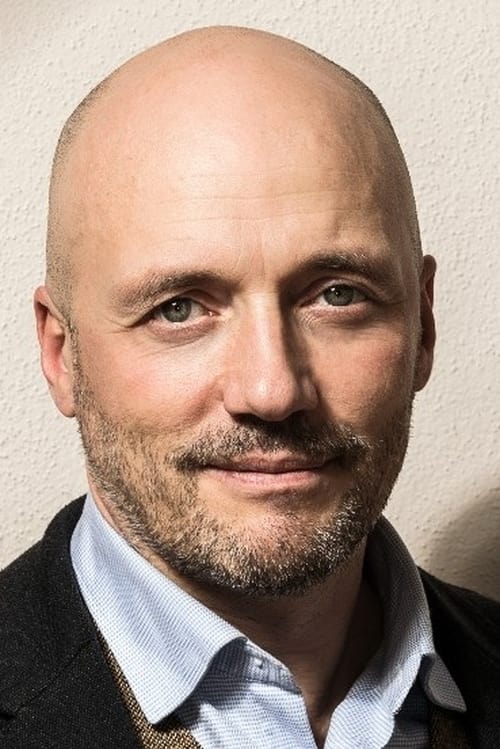
Riwayat Hidup
Ilmar Raag (born May 21, 1968 in Kuressaare) is an Estonian media executive, actor, screenwriter and film director, best known for his socio-critical film The Class.
He has served as CEO of Estonian Television from 2002 to 2005.
He is a well known columnist in many prestigious Estonian newspapers (Postimees, Eesti Päevaleht).
He has written many scripts and directed critically acclaimed films, notably August 1991 and The Class.
He received his high school education from Aleksander Mui (:et) secondary school No 2 of Kingissepa.
He graduated from University of Tartu in 1997 and received his M.
A.
degree in screenwriting from Ohio University, the School of Telecommunications (1999).
He made internships in Hollywood development departments (New Regency, Phoenix Pictures).
His further career took him to the TV management.
After being the Head of Acquisitions for Estonian National Television, he was promoted to the Chairman of the Board of the same TV company.
In 2002, he staged a play in one of the Estonian theaters (Ugala).
At the same time, he started to consult and doctor Estonian feature scripts.
In 2004, he wrote two TV feature scripts.
He directed one of them - August 1991 as made-for-TV movie for Estonian Television and the other, One More Croissant got the third prize at Hartley Merill International Screenwriting Competition and the support from MEDIA New Talent program.
Eager to continue his filmmaking career, he quit as CEO of Estonian Television and made his first feature film The Class in 2007.
Since then he shot a feature in France Une Estonienne à Paris with Jeanne Moreau and Laine Mägi in leading roles, back in Estonia Kertu that was released in 2013 and in Russia I Won't Come Back.
Info Pribadi
Peran Yang Di Mainkan Ilmar Raag
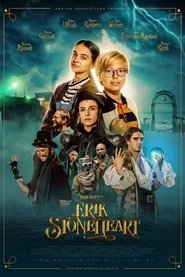 Erik is convinced he has a...
Erik is convinced he has a...Erik Stoneheart 2022
Erik is convinced he has a stone for a heart. That’s why he doesn’t mind that his parents have no time for him, or that he is bullied at school, or that he has no real friends. When his family moves to a villa they inherited, he is confronted by Maria whom Erik's parents want to kick out along with her father. Maria refuses to move and promises to make Erik's life a living hell. As a last attempt to defeat Erik, Maria goes to look for her mother who disappeared two years ago. Together they end up on a fantastical journey to the In-Between-World and Erik learns how hard it really is to wear a heart of stone.
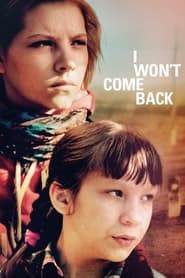 Anya a young academic raised in...
Anya a young academic raised in...I Won't Come Back 2014
Anya, a young academic raised in an orphanage, is on the cusp of success when she’s accused of drug possession. While in limbo hiding from the police, she hits the road with Kristina, another orphan several years Anya’s junior, in search of her possibly mythical grandmother.
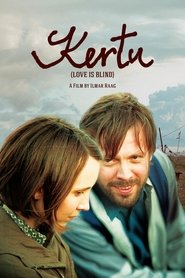 30year old Kertu has lived under...
30year old Kertu has lived under...Love Is Blind 2013
30-year old Kertu has lived under her father's power her whole life. Because of her gentle nature, she is thought by locals to be a little simple-minded. The young woman makes her first timid attempt to change something in her life - she send a postcard to Villu, a handsome but degenerate village drunk.
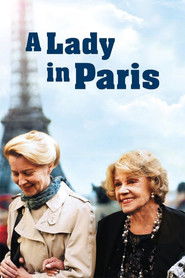 Anne leaves Estonia to come to...
Anne leaves Estonia to come to...A Lady in Paris 2012
Anne leaves Estonia to come to Paris as a caretaker for Frida, an elderly Estonian lady who emigrated to France long ago. Anne soon realizes that she is not wanted. All Frida wants from life is the attention of Stéphane, her younger former lover. Stéphane, however, is desperate for Anne to stay and look after Frida, even against the old lady's will. In this conflict of strangers, Anne will find her own way…
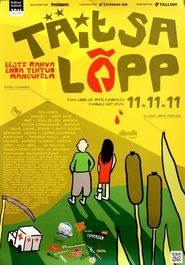 Its December and Christmastime but outside...
Its December and Christmastime but outside...That's IT! 2011
It's December and Christmastime, but outside the summer sun blazes. Something is wrong! The Mayan calendar predicts that the world will end on December 21, 2012. Every Estonian has to decide how they will spend their last days. Rait finally wants to confess his feelings to his lifelong love, the starlet Lenna Kuurmaa. His friend Mihkel, hits his head, goes bonkers, and needs to save the world by sacrificing that very same Lenna to the Sun Gods. Brenda wants to escape her dictatorial mother but insane asylum orderlies chase her. Ervin wins the world's last lottery and is so upset by not having any way to spend it that he wants to die from misery. Confusion reigns, but hope always dies last... And, fortunately, the end finally comes.
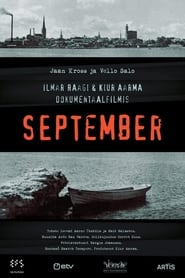 September is a film about the...
September is a film about the...September 2010
September is a film about the complicated choices of simple people. The internationally renowned Estonian author, Jaan Kross (1920-2007) was arrested in 1944 by the Nazis. A year after the Soviet forces entered Tallinn and he was arrested again. The accusation was the same both times: conspiracy with the underground independence revolutionaries. Based on the author's journal, pieces from his oeuvre and interviews, the film creates a story about a few monumental weeks in Tallinn, in September 1944.
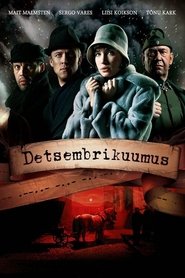 The young country of Estonia is...
The young country of Estonia is...December Heat 2008
The young country of Estonia is dancing to the jazzy tune of the 1920's when on December 1, 1924, the capital Tallinn is overrun by members of the Comintern in an attempt to stage a Communist coup. The film follows the fates of a young soldier called Tanel and his wife, a telephone operator named Anna, amidst the ensuing chaos which determines whether the country remains independent or becomes a minor province in the Communist Empire.
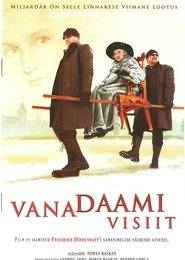 As a young woman Claire left...
As a young woman Claire left...Visit of an Old Lady 2006
As a young woman, Claire left her hometown in disgrace. Now she is old and unimaginably rich, as for the first time she returns. The town is nearly bankrupt and in urgent need of money. Everybody hopes Clara will come to the rescue. And she will. However, there is a condition: somebody must kill the man who was her lover all those years ago.
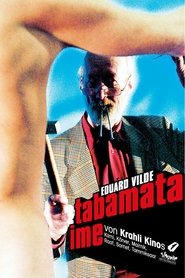 The 6 short films of Tabamata ime...
The 6 short films of Tabamata ime...Uncaught Miracle 2006
The 6 short films of "Tabamata ime" are based on Edward Vilde's play of the same name first published in 1912. Vilde's play is about a young piano player Leo Saalep, who returns to his homeland Estonia to give a concert, and whose alleged international breakthrough has given him the long awaited role of putting Estonian culture on the map in the eyes of the local culture elite.
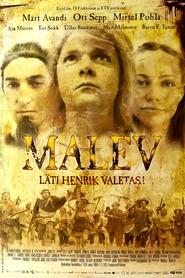 Year 1208 The first Eastward enlargement of...
Year 1208 The first Eastward enlargement of...Men at Arms 2005
Year 1208. The first Eastward enlargement of Europe is under way. Brutal forces of the Teutonic Order are steadily marching on. In their path live a simple and peaceful people, whose main pastimes include cultivating the earth, singing and, if possible, doing both at the same time. They are the Estonians. Ignorant in the ways of war, they find an unlikely leader in a young boy with Catholic upbringing. In their fight for freedom, the Estonians encounter numerous obstacles, including the Germans, French, Russians and, worst of all, the Latvians. Will they succeed in defeating their enemies or will they experience a cultural awakening?
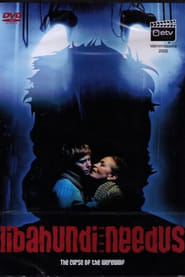 Liina is a young actress at...
Liina is a young actress at...The Curse of the Werewolf 2005
Liina is a young actress at Vanemuise Theatre who gets Tiina's part in the new, postmodernist version of the play "Werewolf" by August Kitzberg. The theatre is haunted and the rehearsals seem to be cursed, artificial blood becomes real blood. The play won't be complete before the murder mystery is unsolved - and Liina is being taken back to the old theatre legends and intrigues of the past century.
 Twentyfive films from twentyfive European countries...
Twentyfive films from twentyfive European countries...Visions of Europe 2004
Twenty-five films from twenty-five European countries by twenty-five European directors.
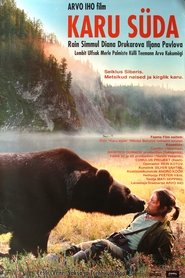 A young Estonian goes to the...
A young Estonian goes to the...The Heart of the Bear 2001
A young Estonian goes to the Siberian Taiga to live as a hunter in a remote forest hut. He hopes to find his true self far from civilisation. The natives he meets introduce him to the myths of the north. The first is a young village teacher who wants to be a good wife to him. The second is a wild and untameable native who becomes his mythical bear-woman. When he accidentally kills a great black bear, his own shadow-creature, he burdens himself with guilt. However, he is given a chance of finding his inner balance. A romantic drama with mythical elements and breathtaking landscapes.
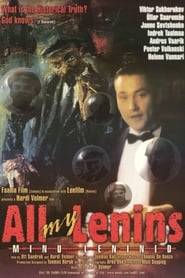 Young and active nationalist Aleksander Keskla...
Young and active nationalist Aleksander Keskla...All My Lenins 1997
Young and active nationalist Aleksander Kesküla makes up his mind to use Lenin, the Bolsheviks' leader, in order to start a revolution in Russia with German money and create a new national state of Estonia in the north-east of Russia. For security reasons, five doubles will be found and trained for Lenin. All of them are finally sent to Russia to instigate the revolution. How will the real Lenin put up with all this?
 Living alone in an Estonian slum...
Living alone in an Estonian slum...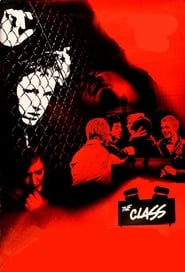 An average guy of an Estonian...
An average guy of an Estonian...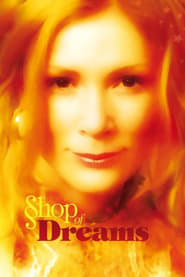 Three friends return from a vacation...
Three friends return from a vacation...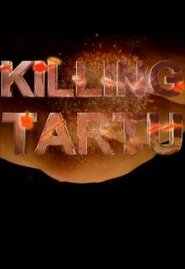 Half the film was shot with...
Half the film was shot with...